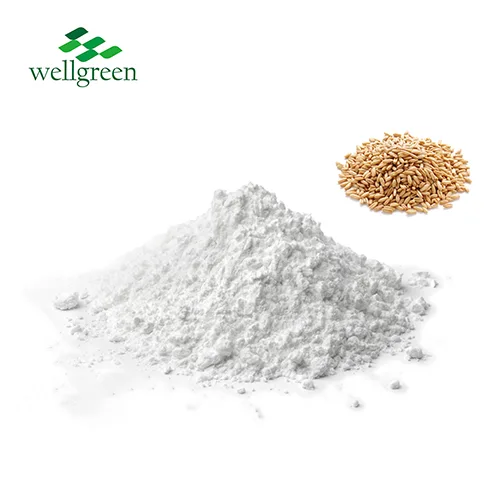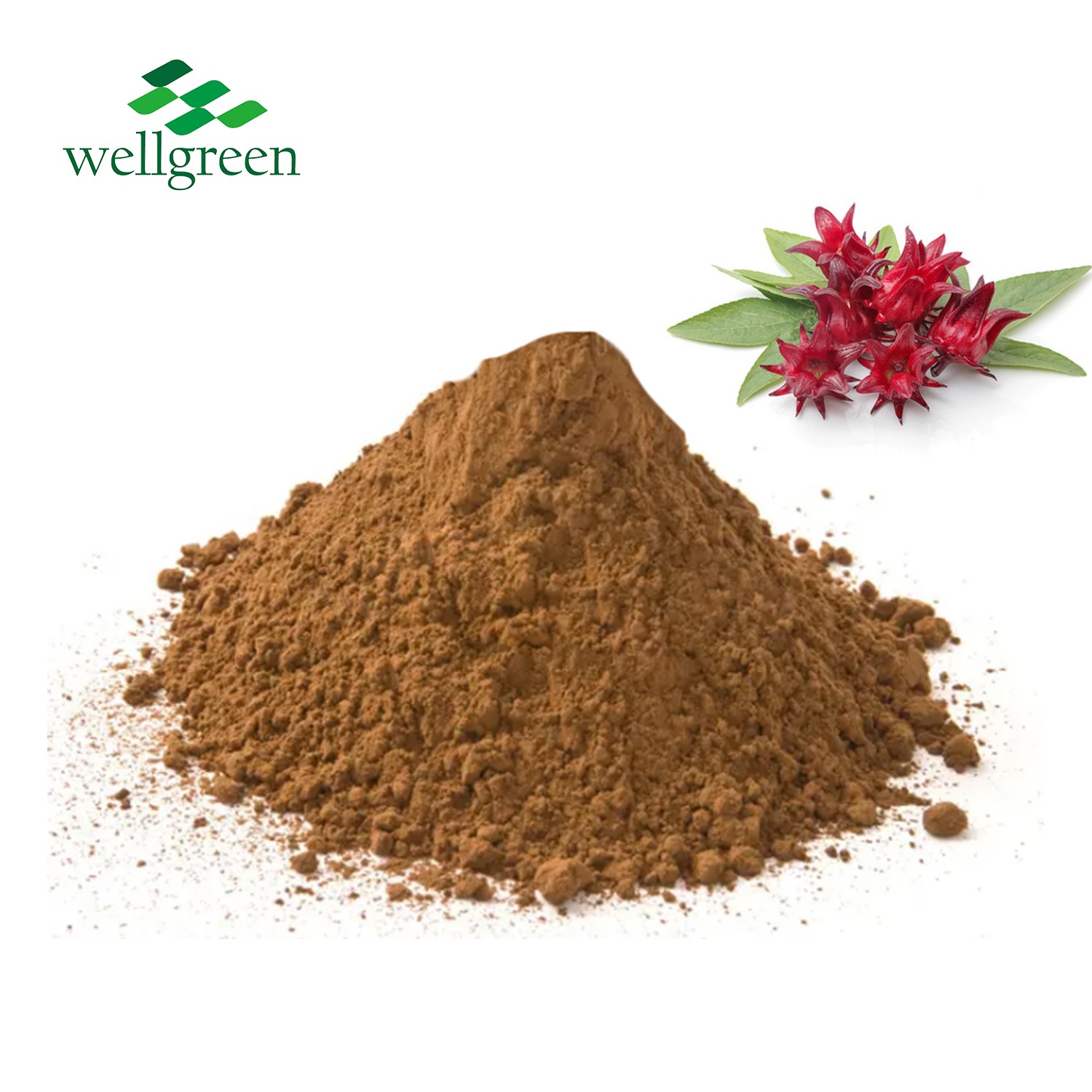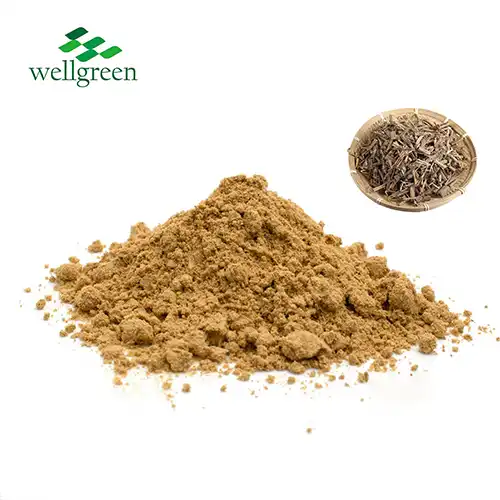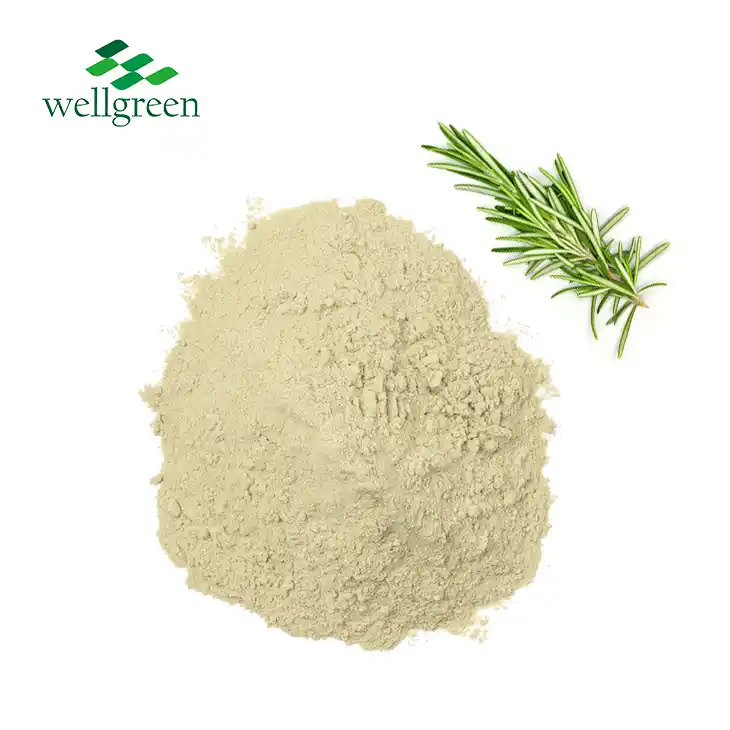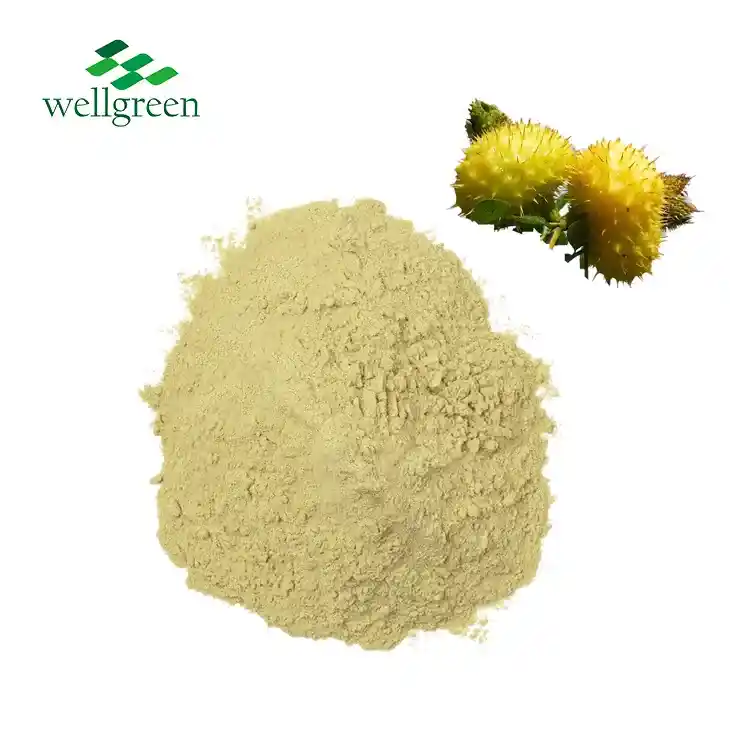Is Organic Matcha Powder Good For You?
2025-08-25 13:56:59
Organic matcha powder is indeed good for you, offering a wealth of health benefits backed by scientific research. This finely ground green tea powder is packed with antioxidants, vitamins, and minerals that support overall wellness. Organic matcha powder can boost energy levels, enhance cognitive function, and promote heart health. Its unique combination of caffeine and L-theanine provides a sustained, calm alertness without the jitters often associated with coffee. Regular consumption of organic matcha may also support weight management, strengthen the immune system, and contribute to healthy aging. As a versatile superfood, organic matcha powder can be easily incorporated into your daily routine for maximum health benefits.

Nutritional Profile and Key Bioactive Compounds in Organic Matcha
Essential Nutrients in Organic Matcha Powder
Organic matcha powder is a nutritional powerhouse, containing a diverse array of essential nutrients. It's rich in vitamins A, C, E, and K, as well as minerals like potassium, calcium, and iron. The powder also provides a good source of dietary fiber, which supports digestive health. One of the most notable aspects of matcha's nutritional profile is its high concentration of chlorophyll, giving it its vibrant green color and detoxifying properties.
Powerful Antioxidants: Catechins and EGCG
The star players in organic matcha powder's antioxidant arsenal are catechins, particularly epigallocatechin gallate (EGCG). These potent compounds help neutralize harmful free radicals in the body, potentially reducing the risk of chronic diseases and slowing the aging process. EGCG, the most abundant catechin in matcha, has been studied for its potential anti-cancer, anti-inflammatory, and neuroprotective properties. The concentration of EGCG in matcha is significantly higher than in regular green tea, making it a superior source of this beneficial compound.
Amino Acids: L-Theanine and Its Unique Benefits
Organic matcha powder contains a unique amino acid called L-theanine, which is responsible for many of its cognitive benefits. L-theanine promotes relaxation without causing drowsiness, helping to create a state of calm alertness. This amino acid also works synergistically with caffeine to enhance cognitive performance, improving focus, memory, and reaction time. The combination of L-theanine and caffeine in matcha provides a smooth, sustained energy boost without the jitters or crash often associated with other caffeinated beverages.
How Organic Matcha Powder Supports Energy and Metabolism?
Balanced Energy Boost: Caffeine and L-Theanine Synergy
Organic matcha powder offers a unique energy-boosting experience thanks to its balanced combination of caffeine and L-theanine. While caffeine provides an immediate energy kick, L-theanine helps to smooth out this effect, resulting in a sustained, calm alertness that can last for hours. This synergy allows for improved focus and productivity without the typical caffeine-induced anxiety or jitters. The energy boost from matcha is often described as more stable and longer-lasting compared to coffee, making it an excellent choice for those seeking sustained mental clarity throughout the day.
Metabolic Enhancement and Fat Oxidation
Organic 100% matcha powder has been shown to have a positive impact on metabolism and fat burning. The catechins in matcha, particularly EGCG, have been found to increase the body's rate of thermogenesis - the process of heat production in organisms. This increase in thermogenesis can lead to a higher metabolic rate, potentially aiding in weight management. Additionally, studies have suggested that the combination of catechins and caffeine in matcha can enhance fat oxidation during exercise, potentially improving athletic performance and supporting weight loss efforts.
Blood Sugar Regulation and Insulin Sensitivity
Regular consumption of organic matcha powder may help regulate blood sugar levels and improve insulin sensitivity. The polyphenols in matcha have been shown to have anti-diabetic properties, potentially helping to reduce the risk of type 2 diabetes. These compounds may work by inhibiting the absorption of glucose in the intestines and improving the body's ability to use insulin effectively. By promoting better blood sugar control, matcha can help stabilize energy levels throughout the day, preventing the energy crashes often associated with blood sugar fluctuations.
Health Benefits of Organic Matcha Powder in Daily Wellness
Cognitive Function and Mental Clarity
Incorporating organic matcha powder into your daily routine can significantly enhance cognitive function and mental clarity. The unique combination of caffeine and L-theanine in matcha promotes a state of alert calmness, improving focus, memory, and reaction time. Studies have shown that regular consumption of matcha may help protect against age-related cognitive decline and neurodegenerative diseases like Alzheimer's. The antioxidants in matcha, particularly EGCG, have been found to have neuroprotective properties, potentially safeguarding brain cells from oxidative stress and inflammation.
Heart Health and Cardiovascular Protection
Organic matcha powder offers substantial benefits for heart health and cardiovascular protection. The high concentration of catechins in matcha has been linked to improved cholesterol levels, with studies showing a reduction in LDL (bad) cholesterol and an increase in HDL (good) cholesterol. These antioxidants also help protect the arterial walls from oxidative damage, potentially reducing the risk of atherosclerosis. Furthermore, the anti-inflammatory properties of matcha may help lower blood pressure and improve overall cardiovascular function, contributing to a reduced risk of heart disease and stroke.

Immune System Support and Anti-Aging Effects
Regular consumption of organic matcha powder can provide significant support to the immune system and contribute to anti-aging effects. The high levels of antioxidants in matcha, particularly catechins and vitamin C, help strengthen the body's natural defense mechanisms against pathogens and environmental stressors. These compounds work to neutralize harmful free radicals, which can damage cells and accelerate the aging process. The chlorophyll in matcha also plays a role in detoxification, helping to eliminate toxins from the body. Additionally, the anti-inflammatory properties of matcha may help reduce chronic inflammation, a key factor in many age-related diseases.
Conclusion
Organic matcha powder is indeed a powerful ally in promoting overall health and wellness. Its rich nutritional profile, coupled with its unique bioactive compounds, offers a wide range of benefits from boosting energy and metabolism to supporting heart health and cognitive function. By incorporating organic matcha powder into your daily routine, you can harness its potent antioxidant, anti-inflammatory, and neuroprotective properties. Whether you're looking to enhance your mental clarity, support your cardiovascular health, or simply enjoy a delicious, nutrient-dense beverage, organic matcha powder proves to be an excellent choice for those seeking to optimize their health naturally.
Contact Us
Ready to experience the incredible benefits of organic matcha powder for yourself? Contact Xi'an Wellgreen today at wgt@allwellcn.com to learn more about our premium, 100% pure matcha powder and how it can support your journey to better health and wellness.
References
1. Weiss, D. J., & Anderton, C. R. (2003). Determination of catechins in matcha green tea by micellar electrokinetic chromatography. Journal of Chromatography A, 1011(1-2), 173-180.
2. Dietz, C., Dekker, M., & Piqueras-Fiszman, B. (2017). An intervention study on the effect of matcha tea, in drink and snack bar formats, on mood and cognitive performance. Food Research International, 99, 72-83.
3. Xu, P., Ying, L., Hong, G., & Wang, Y. (2016). The effects of the aqueous extract and residue of Matcha on the antioxidant status and lipid and glucose levels in mice fed a high-fat diet. Food & Function, 7(1), 294-300.
4. Fujioka, K., Iwamoto, T., Shima, H., Tomaru, K., Saito, H., Ohtsuka, M., ... & Yamamoto, T. (2016). The powdering process with a set of ceramic mills for green tea promoted catechin extraction and the ROS inhibition effect. Molecules, 21(4), 474.
5. Unno, K., Furushima, D., Hamamoto, S., Iguchi, K., Yamada, H., Morita, A., ... & Nakamura, Y. (2018). Stress-reducing function of matcha green tea in animal experiments and clinical trials. Nutrients, 10(10), 1468.
6. Kochman, J., Jakubczyk, K., Antoniewicz, J., Mruk, H., & Janda, K. (2021). Health benefits and chemical composition of matcha green tea: A review. Molecules, 26(1), 85.

